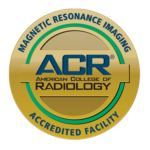 Cardiac MRI: When you were young, you listened to your heart when it came to finding your true love. When you became an adult, you followed your heart when you decided to marry the love of your life. And when your twosome became a family, your heart overflowed with more love than you could have imagined. Your heart has always steered you well, and now it’s time for you to nurture it.
Cardiac MRI: When you were young, you listened to your heart when it came to finding your true love. When you became an adult, you followed your heart when you decided to marry the love of your life. And when your twosome became a family, your heart overflowed with more love than you could have imagined. Your heart has always steered you well, and now it’s time for you to nurture it.
If your healthcare provider has recommended that you have an MRI of your heart or chest area, you may be feeling anxious and unsure. Heart disease can feel like an overwhelming subject to address, especially when it’s personal. Rest assured knowing MRIs are used to help diagnose and treat a variety of heart conditions so that you can be the healthiest version of yourself.
A cardiac MRI uses radio waves and magnets to take images and create highly detailed pictures of your heart. It gives your physician in-depth information that allows them to determine the type and severity of heart disease you have and put together the best treatment and maintenance plan for your individual needs.
An MRI can be used to see if you are suffering from the following conditions:
- Heart tumors
- Heart valve disease
- Congenital heart disease
- Inflammatory conditions
MRIs are painless, safe and radiation-free. An IV may be used to administer a solution called gadolinium for contrast, improving the quality of images the tests take. During the test, you will lie down in a cylinder shaped tube where coils that improved image quality may be placed on or around your chest. Sticky patches, called leads, from Electrocardiogram may be placed on your chest, and an Electro cardiac gating device will follow your heart rhythms while the scanning takes place. While the scan is painless, it can be loud, so you will be given headphones and the ability to listen to music during your test.
Let your doctor know in advance if you have a pacemaker or implanted device, or metal inside or on your body. If you experience claustrophobia, talk to your referring physician in advance. He or she may prescribe a relaxant to help make sure you have a more comfortable experience.
While the idea of having an MRI may cause some nervousness, for most, the test is comfortable and over quickly. And once you are done, you will be able to relax knowing your physician has all of the information they need to care for your heart just like it has it has taken care of you.

